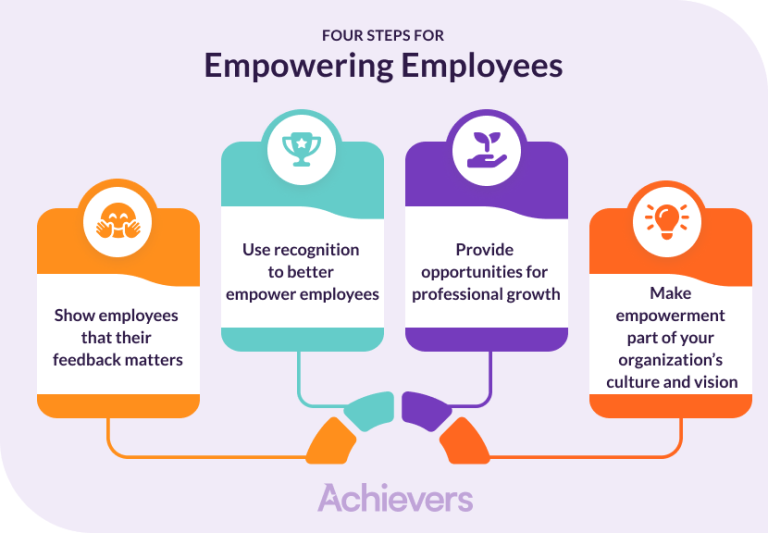How Does Anxiety Affect Public Speaking?
Have you ever felt nervous before giving a speech or presentation? It’s quite common to experience anxiety when speaking in public. In fact, many people find public speaking to be one of their greatest fears. So, how does anxiety affect public speaking? Let’s explore!
Public speaking anxiety, also known as glossophobia, can have a significant impact on both our mental and physical well-being. When we’re anxious, our hearts beat faster, our palms get sweaty, and our minds may go blank. This can make it challenging to convey our thoughts and ideas effectively.
The impact of anxiety on public speaking can range from mild discomfort to debilitating fear. It can affect our confidence, causing us to doubt our abilities and worry about being judged by others. These negative thoughts and emotions can hinder our performance and prevent us from delivering our message with clarity and conviction. But fear not! There are strategies you can employ to overcome public speaking anxiety and become a confident communicator.

How Does Anxiety Affect Public Speaking? Exploring the Powerful Impact of Fear
Public speaking is a common fear for many people, and for those with anxiety, it can be an even more daunting experience. Anxiety affects various aspects of our lives, and when it comes to public speaking, its impact can be significant. In this article, we will delve into the ways in which anxiety affects public speaking, exploring the physical, emotional, and cognitive effects. Whether you’re an occasional presenter or someone who needs to speak in front of large audiences frequently, understanding how anxiety manifests during public speaking can help you navigate this challenge with greater confidence.
The Physical Effects of Anxiety on Public Speaking
Anxiety triggers the body’s natural “fight or flight” response, releasing stress hormones such as cortisol and adrenaline. When faced with the prospect of public speaking, this response can manifest physically in various ways. Firstly, many people experience a rapid heartbeat and increased blood pressure, leading to feelings of a racing heart and a flushed face. This physical response can make it harder for individuals to maintain a calm and composed demeanor while speaking.
Furthermore, anxiety often leads to hyperventilation, resulting in shallow and rapid breathing. This can make it difficult to project your voice and maintain a steady flow of speech. Additionally, anxiety can cause trembling or shaking of the hands, which can be visible to the audience and contribute to a sense of self-consciousness. These physical manifestations of anxiety can make public speaking more challenging and exacerbate the overall anxiety experience.
The Emotional Impact of Anxiety on Public Speaking
Emotions play a crucial role in public speaking, and anxiety can greatly influence one’s emotional state during a presentation. One of the most common emotional responses to anxiety while speaking in public is fear. Fear of judgment, criticism, or making mistakes can cause individuals to become excessively self-aware, leading to heightened anxiety levels. This fear can translate into feelings of nervousness and a sense of vulnerability on stage.
Moreover, anxiety often triggers negative thoughts and self-doubt, which can further intensify emotional distress. These negative thoughts can center around concerns about being perceived as inadequate or incompetent, leading to a decreased sense of self-confidence. It’s important to recognize and manage these emotional responses to anxiety to ensure a more positive and successful public speaking experience.
The Cognitive Challenges of Public Speaking with Anxiety
Anxiety can also significantly impact our cognitive functioning, making it more challenging to think clearly and communicate effectively during a presentation. One common cognitive challenge faced by individuals with anxiety during public speaking is difficulty with focus and concentration. Racing thoughts and distractions can impede the ability to stay on track and deliver a coherent message.
Furthermore, anxiety can impair memory recall, making it harder to remember key points or specific details during a presentation. This can contribute to feelings of frustration and further increase anxiety levels. Cognitive challenges can also manifest as a decreased ability to organize thoughts and structure the presentation effectively. These cognitive effects require strategies to manage anxiety and enhance cognitive performance, such as practicing mindfulness techniques or utilizing memory aids.
Tips for Overcoming Anxiety in Public Speaking
1. Understand your triggers
Identify the specific aspects of public speaking that trigger your anxiety. Is it the fear of being judged, making mistakes, or forgetting your lines? Once you understand your triggers, you can begin to develop strategies to manage them effectively.
2. Practice and prepare
Practice your presentation multiple times before the actual event. The more familiar you become with the material, the more comfortable and confident you will feel during the actual presentation. Prepare cue cards or slides to help you stay on track and ease any anxiety-related memory challenges.
3. Focus on your breathing
Deep breathing exercises can help calm your body and mind before and during public speaking. Take slow, deep breaths to regulate your heart rate and reduce tension.
4. Visualize success
Visualize yourself delivering a successful presentation. Imagine the audience engaged and responsive, and envision yourself speaking confidently and articulately. Positive visualization can help alleviate anxiety and boost self-confidence.
5. Seek support
Don’t be afraid to seek support from friends, family, or professionals. Sharing your anxiety with others can provide comfort and helpful advice. Consider joining a public speaking group or taking public speaking classes to improve your skills and build confidence.
6. Challenge negative thoughts
Learn to recognize and challenge negative thoughts that fuel anxiety. Replace them with positive and realistic affirmations. Remind yourself of your abilities and past successes to boost your confidence.
7. Gradual exposure
Gradually expose yourself to public speaking situations. Start with smaller, low-pressure engagements and gradually work your way up to larger audiences. By gradually building up your comfort level, you can overcome anxiety and gain confidence.
In conclusion, anxiety can have a profound impact on public speaking. It affects us physically, emotionally, and cognitively, making it harder to deliver a successful presentation. However, by understanding these effects and implementing effective strategies, individuals can overcome their anxiety and become more confident public speakers. Remember to embrace your uniqueness, practice self-care, and focus on delivering your message rather than solely on the fear of public speaking. With time and practice, you can conquer anxiety and excel in the art of public speaking.
Key Takeaways: How does anxiety affect public speaking?
- Anxiety can make it difficult to think clearly and remember what to say during a speech.
- Feelings of nervousness can cause physical symptoms like shaking or sweating.
- Anxiety can lead to a fear of being judged or criticized by the audience.
- It is common for individuals with anxiety to avoid public speaking opportunities altogether.
- Seeking support and practicing relaxation techniques can help manage anxiety when speaking in public.
Frequently Asked Questions
Anxiety can have a significant impact on public speaking, causing various challenges for individuals. Here are some common questions about how anxiety affects public speaking:
1. How does anxiety affect public speaking?
When anxiety is present, it can lead to a range of physical and psychological effects that can hinder public speaking. Physically, anxiety can cause symptoms like a racing heart, sweating, trembling, and a dry mouth. These symptoms can make it difficult to speak confidently and clearly.
Psychologically, anxiety can cause negative thoughts, self-doubt, and fear of judgment or failure. These thoughts and emotions can undermine one’s confidence, making it harder to deliver a speech or presentation effectively. Overall, anxiety can impact both the physical and mental aspects of public speaking.
2. How can anxiety affect the quality of a public speech?
Anxiety can affect the quality of a public speech in various ways. Firstly, anxious thoughts and worries can lead to difficulties in organizing thoughts and staying focused. This can result in a disorganized and disjointed speech.
Secondly, anxiety can impair one’s ability to remember and recall information. The fear and stress associated with anxiety can interfere with memory retrieval, causing individuals to forget key points or stumble over their words. This can detract from the overall coherence and effectiveness of the speech.
3. Can anxiety affect non-verbal communication during public speaking?
Yes, anxiety can impact non-verbal communication during public speaking. When experiencing anxiety, individuals may exhibit signs of nervousness, such as fidgeting, avoiding eye contact, or speaking too quickly. These non-verbal cues can convey a lack of confidence and detract from the speaker’s overall delivery.
Anxiety can also affect body language. Tension in the body caused by anxiety can lead to rigid posture, restricted gestures, or excessive movement. This can make the speaker appear stiff or unnatural, potentially distracting the audience from the content of the speech.
4. How can anxiety affect audience engagement during public speaking?
Anxiety can impact audience engagement during public speaking in several ways. Firstly, anxiety can cause individuals to rush through their speech, speaking too quickly to get it over with. This can make it challenging for the audience to follow along and fully engage with the content.
Secondly, anxiety can lead to a lack of vocal variety and expressive delivery. Nervousness can cause individuals to speak in a monotone or with a weak voice, potentially making the speech less compelling and engaging for the audience. It becomes harder for the audience to stay attentive and interested.
5. How can individuals overcome anxiety and improve their public speaking skills?
There are several strategies individuals can use to manage anxiety and improve their public speaking skills. Firstly, practicing and rehearsing the speech multiple times can help build confidence and reduce anxiety. Familiarity with the material can alleviate worries about forgetting or stumbling over words.
Additionally, deep breathing exercises and other relaxation techniques can help individuals manage their anxiety symptoms before and during a public speaking engagement. Seeking support from a professional, such as a therapist or speech coach, can also provide valuable guidance and strategies for overcoming anxiety and improving public speaking skills.
Summary
Public speaking can be scary, especially if you have anxiety. But don’t worry, you’re not alone. Many people feel anxious when speaking in front of others. Anxiety can make you feel nervous, have a racing heart, or forget what you want to say. It’s important to remember that anxiety is a normal feeling, and there are things you can do to manage it.
One way to reduce anxiety is to prepare for your speech. Practice what you want to say and know your material well. Taking deep breaths and using relaxation techniques can also help calm your nerves. Remember, everyone makes mistakes, and it’s okay if you do too. The most important thing is to be confident in yourself and believe that you can do it. So take a deep breath, smile, and go give that speech with pride!


